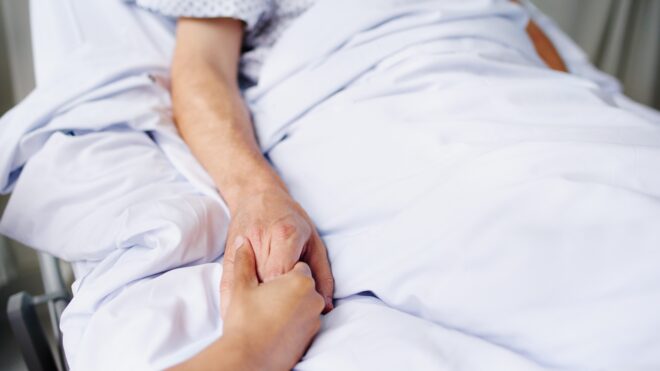Everyone likes something a little sweet now and again, but depending on our bodies, we may have to be a little more careful when it comes to indulging than others.
This caution is not just about things like weight gain or even the inflammation of the gut and candida overgrowth that eating too much sugar can cause. In fact, it's much simpler, but can be much more dangerous to your health: it's your blood sugar levels.
Now, your body and blood need a certain amount of sugar for energy, but too much can cause serious health complications like diabetes, hyperglycemia.
Too high blood sugar can also cause a host of very unpleasant symptoms, with a diabetic coma being the most severe. (This can also happen when your blood sugar is too low, but that's another issue!)
Luckily, there are lots of warning signs before a coma happens, so don't freak out.
Just be sure that you're paying attention to what your body is telling you, and if you have existing issues with blood sugar, make sure your doctor knows all about any symptoms or changes you may have experienced.
Learn the signs you that could be warning you that your blood sugar is getting too high.
Obviously, if you take your blood sugar levels, then you'll know what's too high, but if you've never done it, there are also physical symptoms that you should be aware of.
With some vigilance, as well as some changes to your diet and lifestyle, you can bring your levels back to normal.
Just be sure to consult with a doctor before making any changes.
Why Is High Blood Sugar Dangerous?
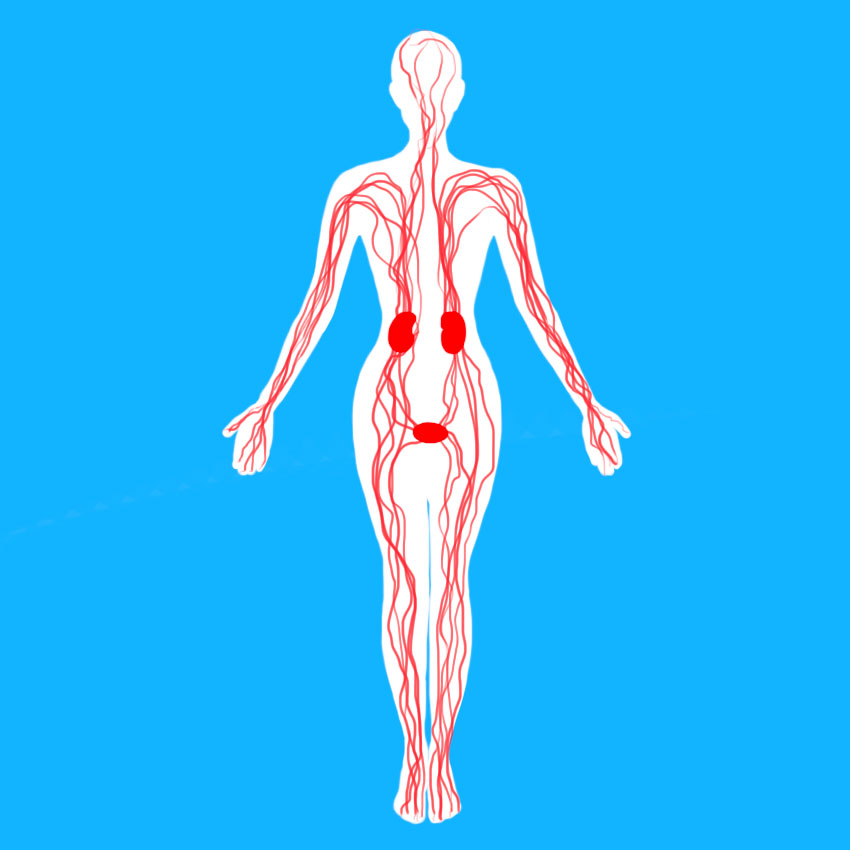
If your blood sugar levels are too high, it can really wreak havoc on your body.
Frequent or ongoing high blood sugar can cause nerve damage, as well as damage to the blood vessels and organs.
For people with Type 1 diabetes, it can also lead to a buildup of acids in the blood, throwing off the chemical balance of your whole body.
People with Type 2 diabetes have to worry about hyperglycemic hyperosmolar nonketotic syndrome (HHNS), which means your body can't process sugar. HHNS is potentially deadly.
But you don't have to have diabetes to feel the effects of high blood sugar.
What Makes Blood Sugar Levels Go Up?

Blood sugar levels may rise after eating a very large or very carb-heavy meal.
People with diabetes will experience blood sugar spikes more frequently than those without it, but it can happen to anyone. Stress, illness and infection, and inactivity can also cause blood sugar levels to rise.
If you have diabetes 1 or 2, strenuous physical activity while insulin levels are low and blood sugar is already high can also cause a dangerous rise, as can forgetting to take diabetes medication.
So, what are the symptoms you should look out for?
Symptom #1: Increased Thirst
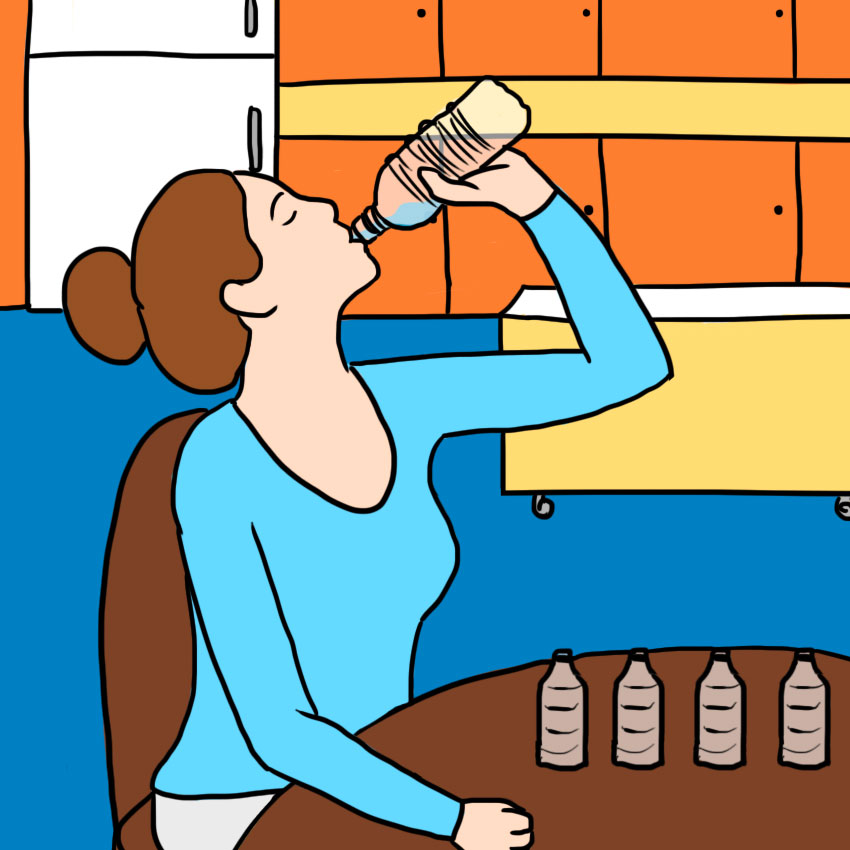
If you find you're suddenly very thirsty all the time, even if you've been drinking enough fluids, high blood sugar may be the culprit.
You may find you feel increasingly thirsty after a large meal, especially one that features a lot of carbs like bread or pasta.
If you feel less thirsty after a little while, your levels have likely evened out, but if the feeling of thirst persists, you may have a more serious issue.
Symptom #2: Dry Mouth
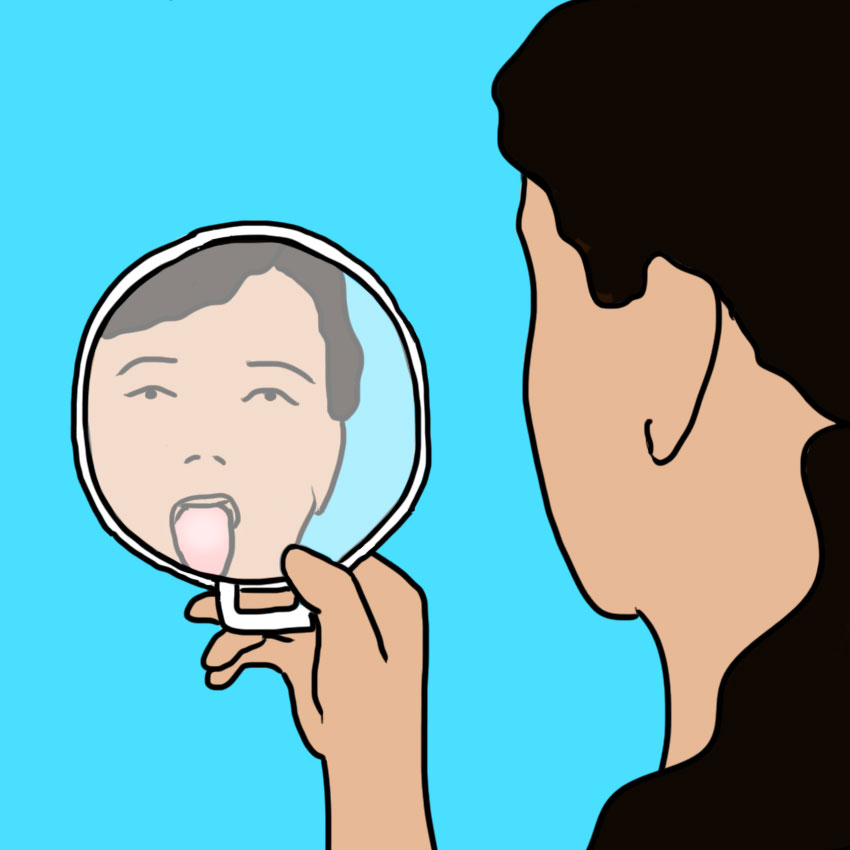
Along with thirst, high blood sugar will give you that gross, dry, cotton-mouth feeling, like there isn't enough saliva to keep your lips and tongue comfortable.
Dehydration is a very real risk, especially for those with Type 2 diabetes, and is a major symptom of HHNS.
If you think you may be approaching dangerous levels of dehydration, get medical attention immediately.
Symptom #3: Frequent Urination
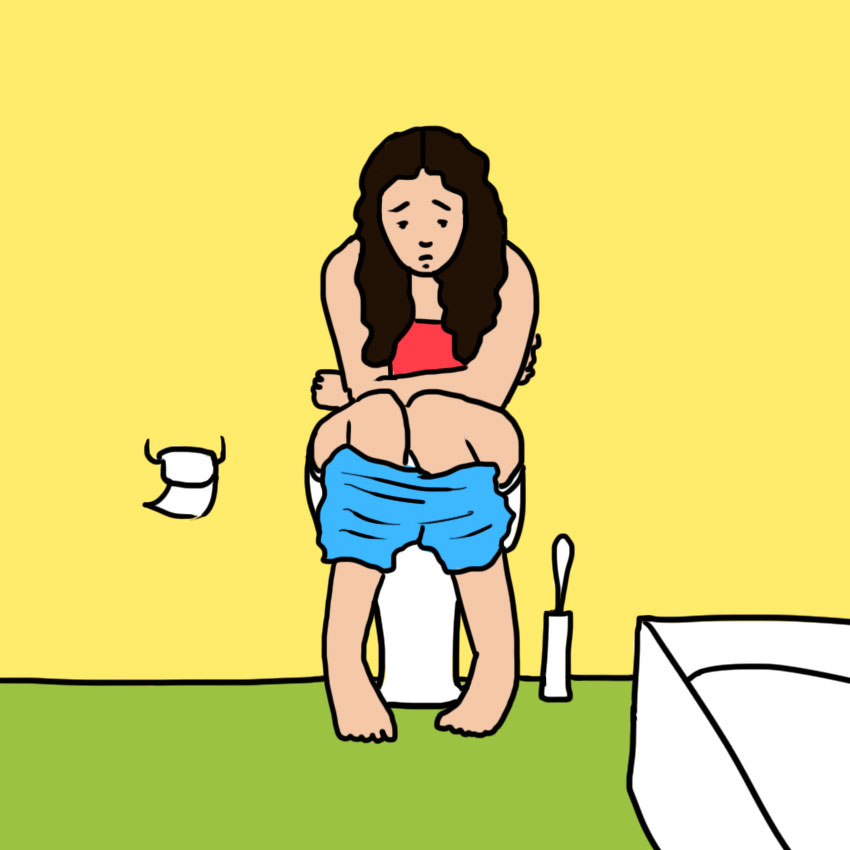
This is another facet of the overall dehydration. People with high blood sugar will feel the need to go more often than usual, which will also exacerbate the feelings of thirst and dry mouth.
And the dehydration gets worse, the urination will decrease in frequency, and the urine will get darker in color.
This means that the person is severely dehydrated, and may have HHNS.
If this happens, get medical attention immediately.
Symptom #4: Stomach Pain
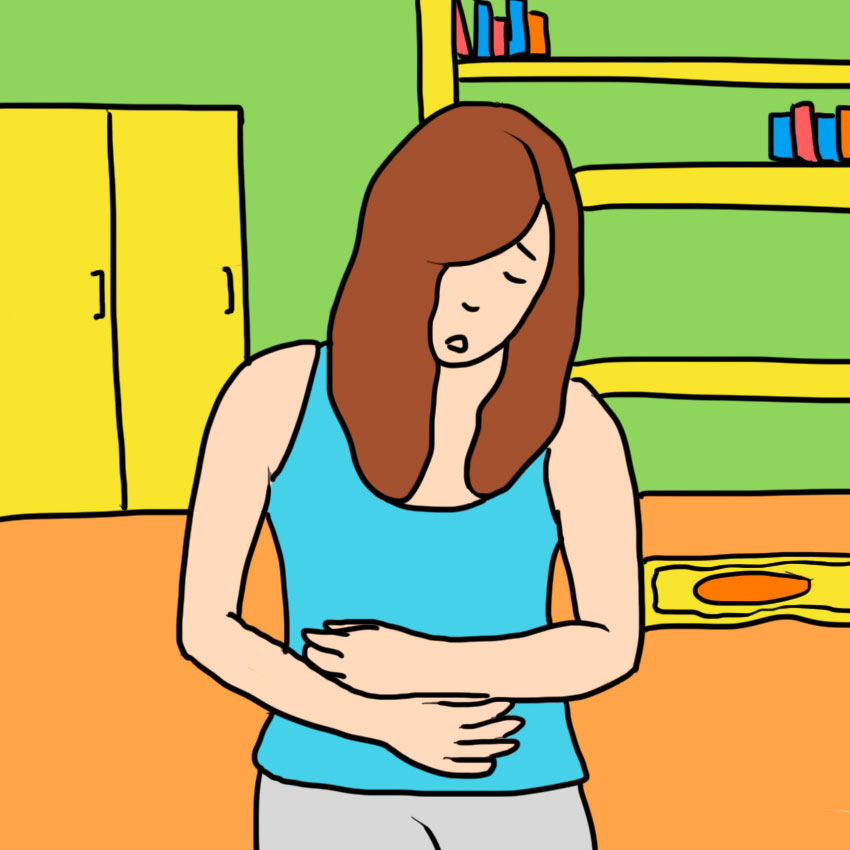
High blood sugar often causes upset stomach.
If you don't have diabetes, this can just be your body trying to digest a large meal, or even some mild inflammation of the organs, which happens often after eating a lot of refined carbohydrates and processed sugars.
If you have diabetes, this stomach pain can recur. The condition is called gastroparesis, and it happens when blood sugar levels slow the contractions that move food along your digestive system, causing discomfort.
Symptom #5: Nausea And Vomiting
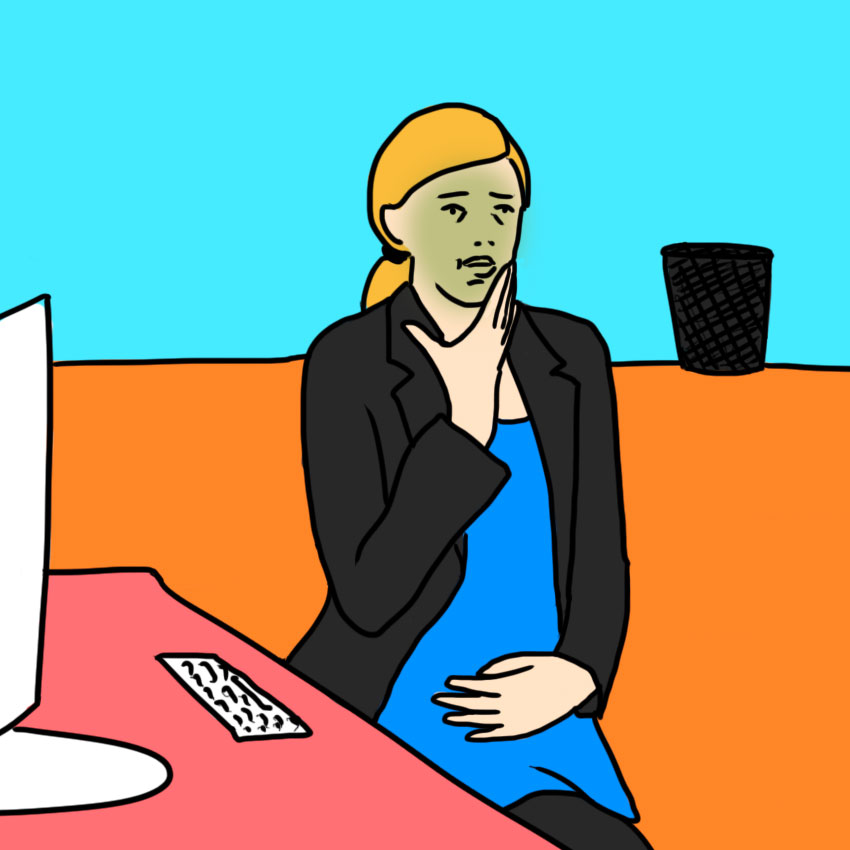
Along with pain in the stomach, it's common to feel nauseous when blood sugar levels are too high. This nausea can be do to gastroparesis, as well.
High blood sugar can also damage nerves in the stomach and digestive tract, which makes gastroparesis even worse, which can lead to vomiting.
Symptom #6: Shortness Of Breath
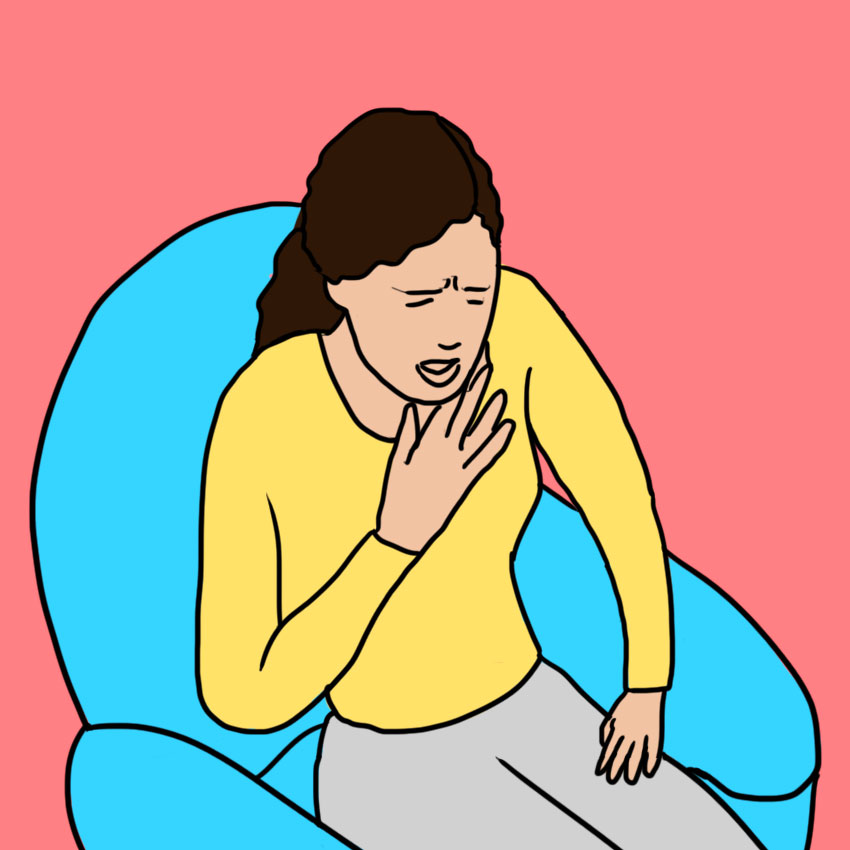
Shortness of breath is a sign that your blood sugar levels are far too high and have been that way for too long.
It is often a sign of ketoacidosis, which is what happens when your body ceases to be able to break down sugar, and so starts breaking down fat for energy, leading to a buildup of waste material called ketones.
When these back up in your blood, they cause ketoacidosis, which can lead to a diabetic coma.
If you find yourself short of breath, seek medical help immediately.
Symptom #7: Sweet Or Fruity-Smelling Breath
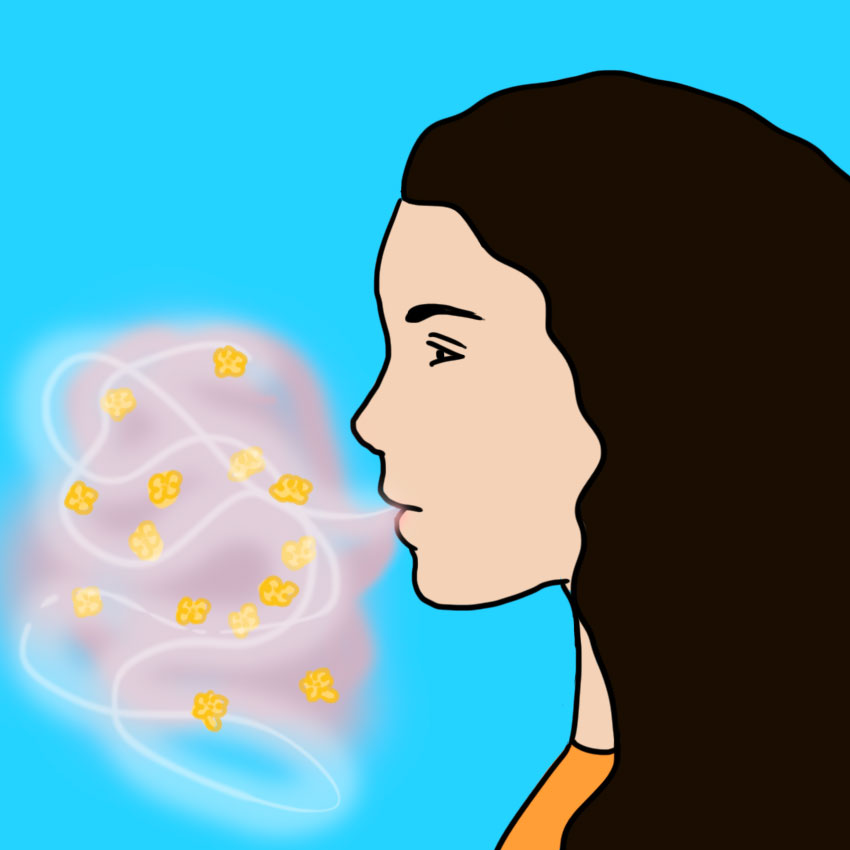
Breath that smells sweet or fruity (in an unpleasant way) is another sign of high blood sugar and ketoacidosis.
This smell comes from a buildup of ketones in your body. Acetone is a ketone, so breath can also have a smell like nail polish remover.
Having some ketone material in your body is alright, but if it's affecting your breath, and especially if you have diabetes, this can be a sign that you need some medical attention.
Symptom #8: Blurred Vision
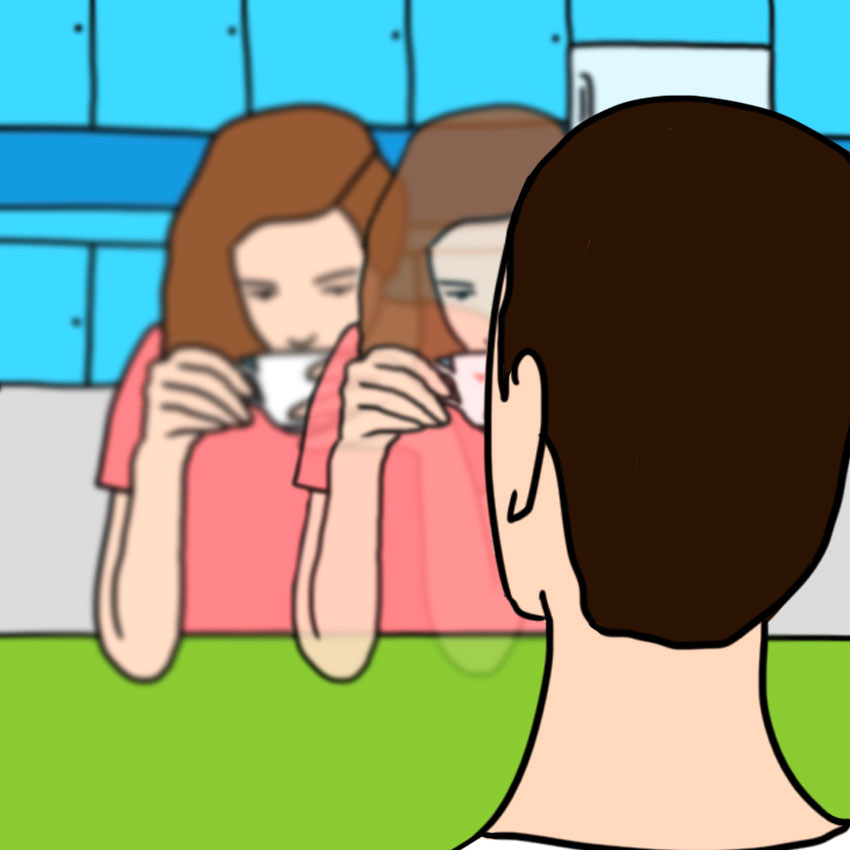
Blurry vision is often an early sign that your blood sugar levels aren't quite right.
Diabetes affects the nerves of the body, and can also increase the risk of glaucoma, as well as diseases of the retina.
If you notice increased blurriness, even with glasses or contacts, eye pain, loss of peripheral vision, or double vision, you may be experiencing a side effect of high blood sugar. Talk to an eye doctor about what you can do.
Symptom #9: Fatigue And Trouble Concentrating
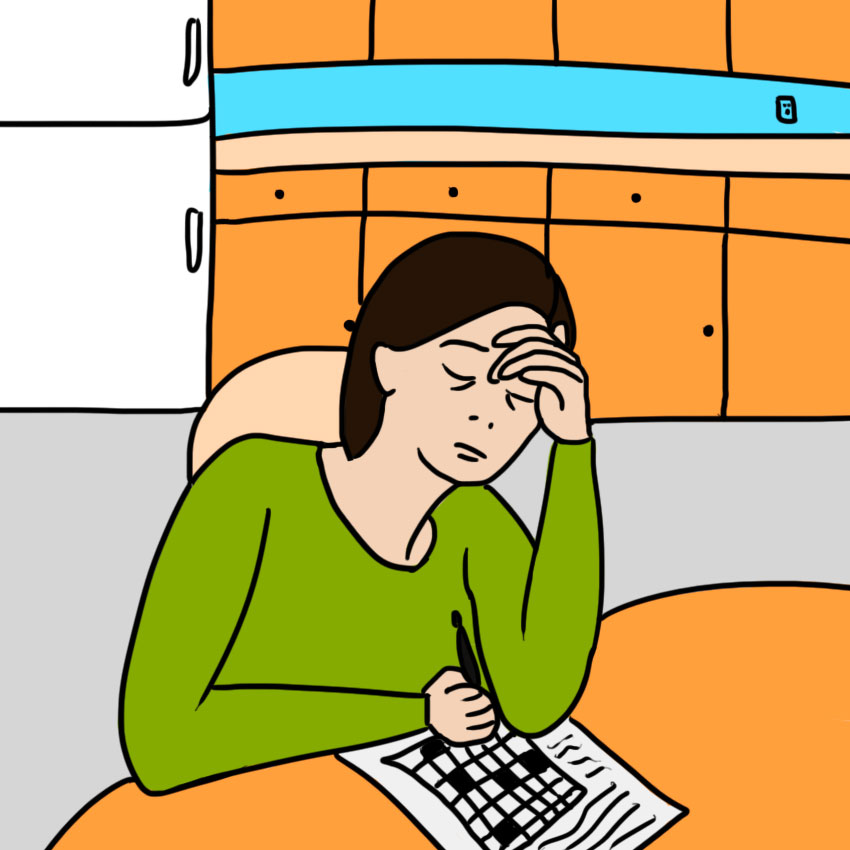
If you don't have diabetes, this foggy, sluggish feeling could just be a sign that you ate too much and just have to digest a bit.
For those with diabetes, though, fatigue can be more frequent, and can even impact daily life.
Fatigue happens when glucose levels make the blood thicker, which means oxygen isn't getting to your cells as quickly as it normally would, making you feel sluggish and drowsy.
Sugar also causes inflammation of the blood vessels, which sends your immune system into overdrive, also causing tiredness.
What Should You Do If Your Blood Sugar Is High?
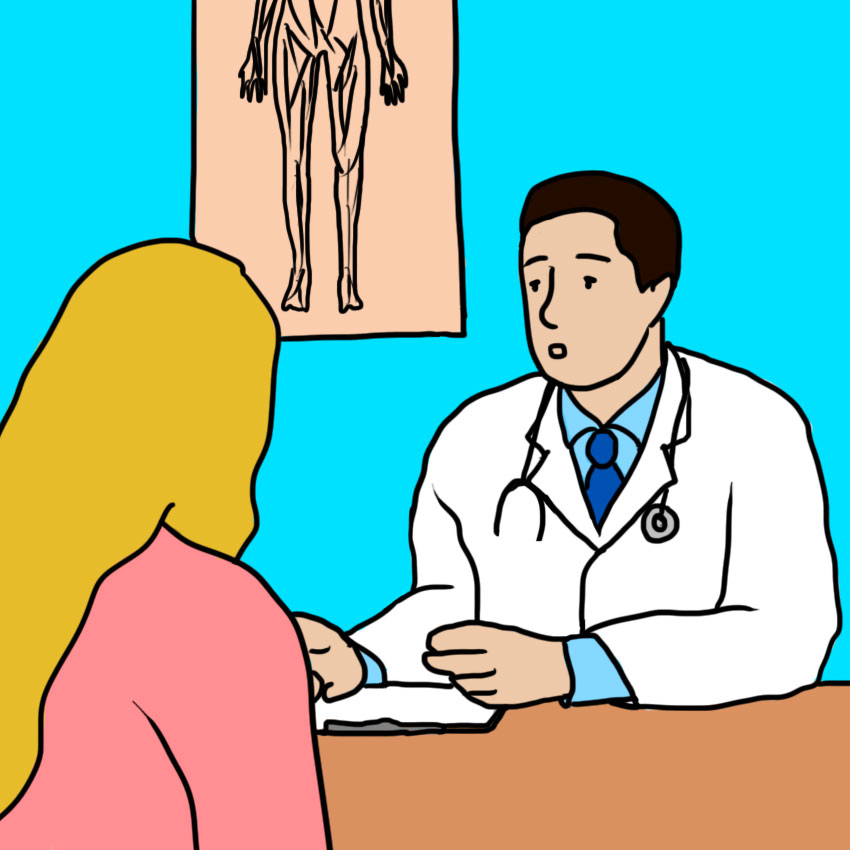
It's a simple answer: talk to your doctor!
Tell them your symptoms as well as your day-to-day habits, and together, you'll be able to form a plan of action to get your sugar levels balanced.
This may include medication as well as lifestyle and diet changes, depending on your needs.
Obviously, if you or someone you know really feels terrible, get emergency care.
And SHARE this important health information with everyone you know!


